Click here to return to the event page.
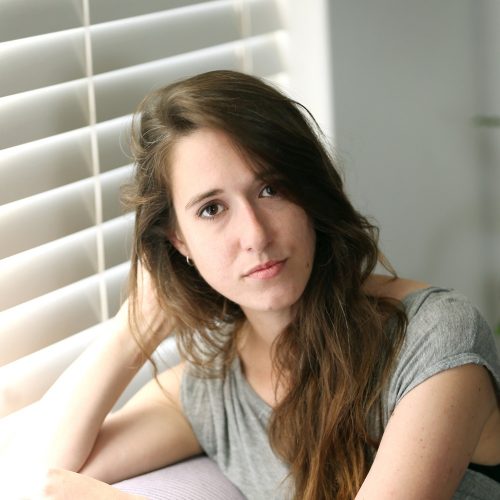
Ana Palacios has a background in the contemporary arts and after receiving an adult diagnoses of autism, she realised her art practice had emerged as a positive adaptation to the challenges of being neurodiverse. Starting at Spectrum Space as a volunteer in 2017, Ana began working as a visual arts facilitator before expanding her role further. She now mainly concentrates on peer work, development of positive identity, as well as development and facilitation of training and educational courses.
Autism, Identity and Wellbeing – A workshop for individuals and families
How can one advocate for oneself without understanding what being autistic and being part of the autistic community means? Empowering people with knowledge increases understanding and greater equity of opportunity, but it also enables autistic individuals to better advocate for themselves. We believe this can start as early as possible and in this workshop, Ana and Louise guide families raising autistic children, carers, support workers and individuals with lived experience through autism awareness, with the view to maximise wellbeing and quality of life. The concept of universal design for life is explored as a take-away tool, and community is emphasised as a positive and healthy support for autistic individuals.
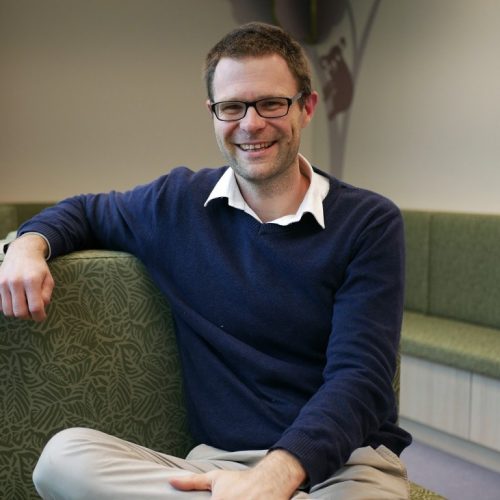
Andrew Whitehouse is the Director of CliniKids, and the Angela Wright Bennett Professor of Autism Research at the Telethon Kids Institute and Professor of Autism Research at The University of Western Australia. He is also the Research Strategy Director of the Cooperative Research Centre for Living with Autism (Autism CRC) and Adjunct Professor at Curtin University and Edith Cowan University.
At the Telethon Kids Institute he leads a large team that use a wide range of methodologies to investigate the early identification and intervention of children with Autism Spectrum Conditions, including molecular genetics, neuroscience, endocrinology, behavioural experiments and clinical trials. Andrew has published over 200 peer-reviewed journal articles and attracted over $40 million in competitive research grants. He currently presents an internationally syndicated video series called ’60 Second Science”, which has been viewed by over 1 million people. He is an advisor to State and Commonwealth Governments on policies relating to children with Autism Spectrum Conditions, and he chaired the committee that generated Australia’s first national guideline for autism diagnosis.
Andrew has published one edited book with his twin-brother (Ben), and a popular science book that examined the science behind some of the myths of pregnancy and child development (Will Mozart Make My Baby Smart?). He has also been awarded Australia’s most prestigious scientific award, the Eureka Prize. Prior to coming to the Telethon Kids Institute, Andrew was a Fellow at the University of Oxford.
Workshop for Clinicians: Discussing the evidence for interventions for children on the autism spectrum.
You will be invited to join Andrew for an informal discussion about recent report for the NDIS on the evidence-base for intervention for children on the autism spectrum. Andrew will walk the audience through the key aspects of the report, and have a question and answer session where he hopes he can answer any questions you may have. The report can be downloaded here.Early Intervention: Making decisions on what support to choose
Every parent wants the best for their child on the autism spectrum, but navigating the maze of interventions can be tiring, costly and confusing. A recently released landmark report summarised the best evidence for some 111 different intervention approaches. Andrew Whitehouse led the development of the report, and in this presentation Andrew will describe the report, and how it can be used to help inform decision making around which intervention may be the most appropriate for which child on the autism spectrum, and some of the gaps he’d like to see addressed.
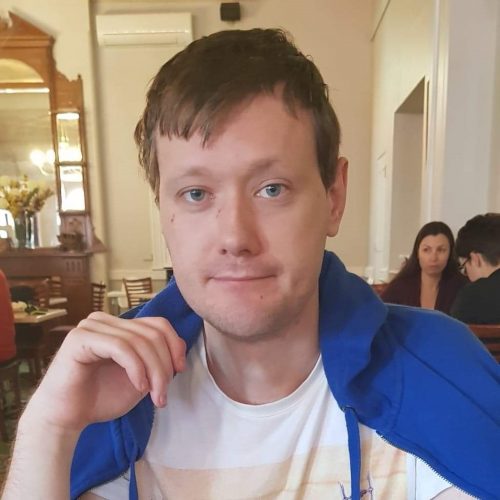
Caris Henderson
Caris is a Kalgoorlie local, mother of two autistic children and sister of Maitland, who is also autistic. When they were children, Caris watched Maitland struggle with bullying and not being able to learn at school. As a sibling, she shared in his trauma and knows the effect this has had on her brother as an adult. When her son, and then daughter, was diagnosed as autistic, she made a promise to herself that history was not going to repeat itself. Her work as an Education Assistant at Hannans Primary School, as well as at local service provider, One Central Health, means she can actively be part of the positive change she so passionately believes in.
Maitland Gill
Maitland firmly believes in education, although his past experiences has meant that when he wants to learn something new, he tends to do it himself. Lately, he has been teaching himself all about aquaponics and water purification, as well as how to use CAD drawing program. He lives in Kalgoorlie and is currently focusing on taking his driving licence and working towards getting employment by building on his social skills.
Caris will present on the interview she did with Maitland about his lived experience, what we can all do to foster greater understanding and how learning from the past can bring positive change.
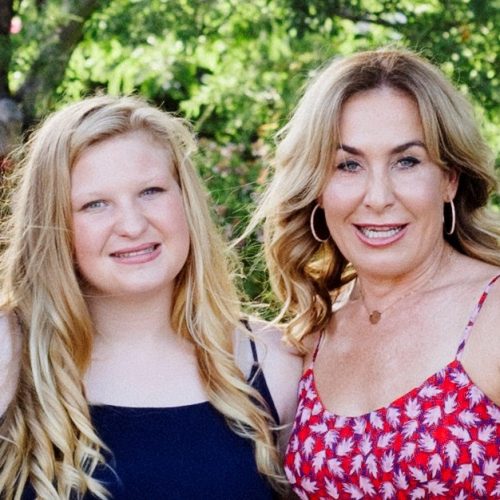
Christina has a background as a trained secondary science and mathematics teacher and worked in the secondary school sector for 15 years before undertaking academic teaching in the School of Education, Edith Cowan University. Christina teaches in both primary and secondary Master of Teaching programs for post-graduate students, in addition to consultancy for Human Biology ATAR and study skills programs for Years 7-12 secondary students. In recent years, she has taught in core education units, delivering tutorials and lectures in diversity and inclusion, classroom management, assessment and reporting and beginning teaching theory. Christina is currently completing her PhD, focusing on collaborative communication practices undertaken by stakeholders to support secondary students with autism, a field in which she has an avid interest, and is also a Director at Team Collaborate.
Christina has a 16-year-old daughter with autism who attends a public secondary fully inclusive school with a promising future however, it has been a difficult journey even with expertise and knowledge. Christina is an avid supporter of inclusive education, recognising the challenges for students with autism, parents and advocates, secondary school teachers, education assistants, school leadership and allied health service providers; all stakeholders require means to collaboratively communicate to facilitate optimal outcomes for secondary school students with autism; both during secondary schooling and for their post-secondary pathways.
Collaborative Communication in School: Improving outcomes for secondary students with autism
Secondary schooling positions students with autism in more complex settings than primary school; greater demands for social and academic independence, accommodation of frequent movement between classes, different subject teachers, varied student compositions in classes, and increased unstructured periods of time throughout the day. Communication between family-school stakeholders is increasingly important, as parents and adolescents with autism navigate their way through this complex milieu. Current research findings discuss considerable challenges experienced by students with autism during transition from primary to secondary schooling, often increasing in secondary schooling.Effective collaborative communication practices between key stakeholders of the professional learning community (PLC) are essential to optimise outcomes for secondary students with autism in inclusive education settings. The stakeholders of the PLC are school leadership, educators, education/ support assistants, parents, allied health professionals, and adolescent students with autism. This session explores the use of regulation zones to monitor students with autism throughout the school day, in addition to sharing dialogue gathered by each stakeholder group of the PLC about effective ways to support students during their secondary schooling trajectory, inclusive of post-secondary students with autism.
Workshop for Clinicians: Compassionate therapy – Navigating bell-being of parents whose child has an autism diagnosis
We live in a society where child development from birth is mapped by a series of milestones produced from baby and toddler developmental books, extended family, society and expectations of parents themselves. For parents and carers, entering a world of unknowns where their child has not achieved expected milestones, a diagnosis of developmental delay is generally the first received. A formal diagnosis of autism may follow for many of these children, with some diagnoses only received in teenage years and adulthood. Parents and carers firstly engage with allied health service providers, occupational therapists, speech pathologists, physiotherapists, psychologist and psychiatrists. The world quickly changes for parents as they grapple with their new norm, along with a brand-new library of reading material. A discussion of aspects to be aware of, via parental perspectives, is introduced in this workshop and how therapists can work with parents to provide optimal support in what is sometimes a difficult journey.
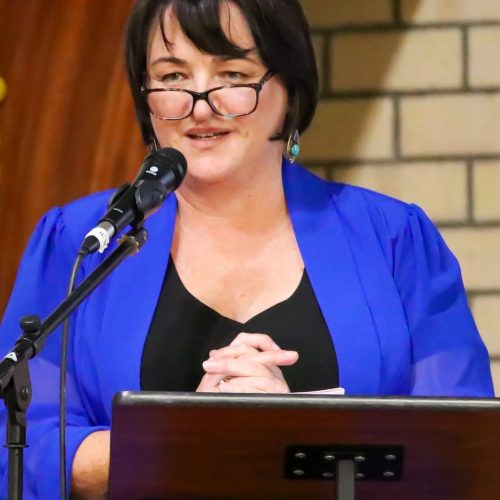
In 1998 Clara and Damian Harris were thrilled to be expecting their first child and raising their babe on the family farm at Binnu, WA. They never imagined that the next two decades would be filled desperately searching for answers for their boy, instigating early intervention therapies, battling severe depression, drowning in red tape and fighting off sharks in so many guises.
At two and a half, Sam was diagnosed with autism and what follows is a story of love, community, strength, sadness, courage, and acceptance.
‘Swimming with Sharks,’ is the story you didn’t know you needed to hear. It is for every adult in the community. It is for those who’ve never been exposed to disability, through to those whose lives are completely immersed in it. It is a must for education and health professionals.
Sam is now a fantastic young man in his twenties. He brings smiles to faces, joy to hearts and he has so much to give.
Swimming with Sharks isn’t a story that Clara expected to be telling, she shares it because it’s the story she needed to hear a long time ago. It’s the story nobody else tells.
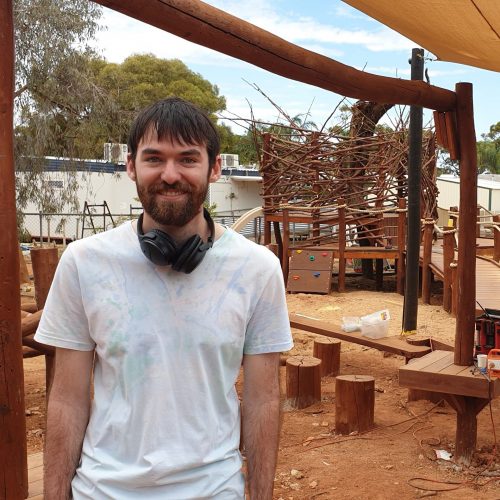
Declan Rixon’s lived experience affords him a unique insight into the lives of the children he supports as a Therapy Assistant at Full Circle Therapies in Kalgoorlie. Growing up, Declan’s childhood was accompanied by anxiety and it wasn’t until his diagnosis in year 11/12 that he developed the self-awareness that helped him be a lot more comfortable with just being himself. He feels the children he works with in Early Intervention just want to be understood and he uses his relationship building skills to find out their interests and have fun in order to build rapport. Declan’s presentation ‘Finding My Normal’ charts his journey to date and how a greater understanding of self can bring feelings of content.
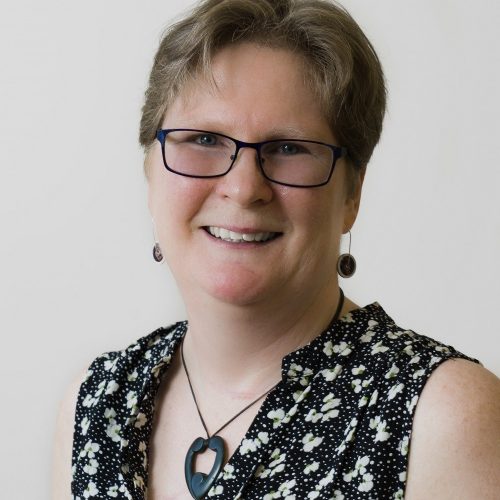
Dr Emma Goodall is an autistic author, keynote speaker, researcher and disability and education consultant. She works both publicly and privately to facilitate the best life outcomes possible for people, including autistics with a range of support needs. She has written and presented on education, autism, resilience, mental health, interoception, relationships and sexuality for autistics.
An adjunct Professor at the University of Wollongong and a member of the Australian Society for Autism Research (ASfAR) Executive Committee, she developed an online module on interoception for Torrens University and has collaborated with the Australian Psychological Society to develop an autism specific course for psychologists. Widely published, Emma writes for both academic journals and for mainstream publishers in the areas of autism, disability, education and disability. She also supports organisations to develop and implement plans to support adult autistics in residential settings and provides life coaching and interoception coaching for autistic adults, children and young people, schools, preschools and other organisations, through her Healthy Possibilities Consultancy.
Sensory Regulation
In this session, we will learn more about the 8 senses and how these might helpfully and unhelpfully impact an individual on the autism spectrum. We will then explore some tools to help us plan how to support an individual with their sensory regulation and consolidate our understanding of the benefit of this. Example strategies will be shared from parent, teacher and autistic lived experience perspectives.Mental Health and Wellbeing
During this session, we will explore why the rates of mental health difficulties are so high for those of us on the autism spectrum as well as look at a range of practical strategies to manage our own mental health and wellbeing. These strategies will be focused particularly around anxiety and depression and will be useful not just for autistic adults but for families and professionals as well.
Workshop: Parental Self Care with Tom Tutton
Parenting any child can be stressful but this can be especially so if you have to learn new autism-specific approaches and if you receive little support to do so. Parents of children on the autism spectrum sometimes overlook their own self care. This session combines information from the Positive Partnerships self-care session on understanding the importance of self-care, identifying and planning self-care opportunities and a session from Aspect’s Positive Behaviour Support workshop in responding to behaviours that challenges us. We acknowledge the normal range of human thoughts and feelings that occur in challenging situations and then make a plan t respond more helpfully. Emma will close the session discussing and practising calming, self-regulation and co-regulation.
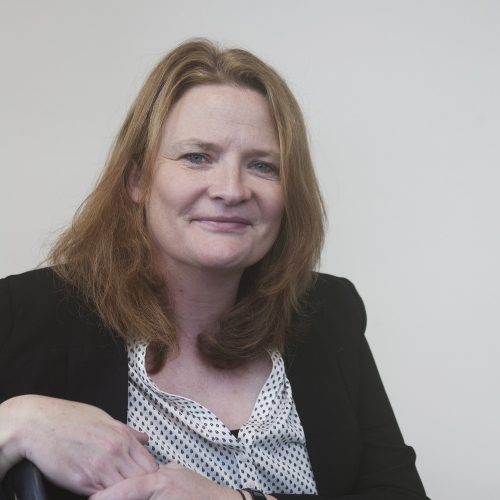
Most of Louise’s career has been involved in the not for profit sector. Louise has been working with teenagers and adults on the autism spectrum since 2011 developing services based on a strengths based approach to increase equality of opportunity. Louise has been interested in rights and education since her role as an educational policy worker in Ireland in 2000. She is passionate about ensuring that individuals on the autism spectrum are actively involved in planning, development and delivery of services.
Autism, Identity and Wellbeing – A workshop for individuals and families
How can one advocate for oneself without understanding what being autistic and being part of the autistic community means? Empowering people with knowledge increases understanding and greater equity of opportunity, but it also enables autistic individuals to better advocate for themselves. We believe this can start as early as possible and in this workshop, Ana and Louise guide families raising autistic children, carers, support workers and individuals with lived experience through autism awareness, with the view to maximise wellbeing and quality of life. The concept of universal design for life is explored as a take-away tool, and community is emphasised as a positive and healthy support for autistic individuals.
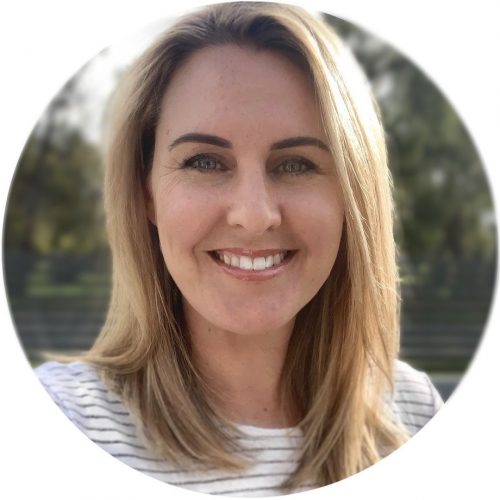
Megan is a dynamic trainer and presenter and her passion comes from lived experience. She understands the NDIS planning process from her work as a Support Coordinator and keenly listens to the barriers that individuals with disabilities face and methodically problem-solves to find solutions so they can live fulfilling lives. One of her three children, Calvin, has ASD and an intellectual disability, as well as other co-morbidities. Megan is a Board Member at the independent public school her other two children attend and her husband, Kane Moyle, is the Chair of the Creaney Education Support School Board where Calvin attends. Kane is also the Deputy Chair of MACD (Ministerial Advisory Council on Disability) which provides independent advice to the WA Minister for Disability Services.
Workshop for Clinicians: Compassionate therapy – Navigating bell-being of parents whose child has an autism diagnosis
We live in a society where child development from birth is mapped by a series of milestones produced from baby and toddler developmental books, extended family, society and expectations of parents themselves. For parents and carers, entering a world of unknowns where their child has not achieved expected milestones, a diagnosis of developmental delay is generally the first received. A formal diagnosis of autism may follow for many of these children, with some diagnoses only received in teenage years and adulthood. Parents and carers firstly engage with allied health service providers, occupational therapists, speech pathologists, physiotherapists, psychologist and psychiatrists. The world quickly changes for parents as they grapple with their new norm, along with a brand-new library of reading material. A discussion of aspects to be aware of, via parental perspectives, is introduced in this workshop and how therapists can work with parents to provide optimal support in what is sometimes a difficult journey.
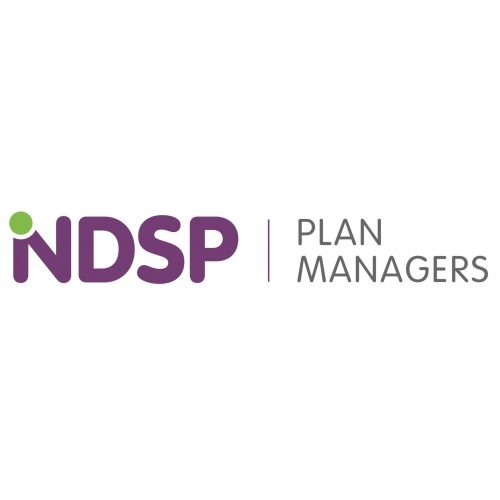
Cherie Cordina, National Relationship Manager
Cherie is a founding member of the NDSP Plan Managers family and lives and breathes for the disability sector. With 14 years sector experience and over 5 years NDIS, Plan Management and Support Coordination experience, Cherie has become bi-lingual in the NDIS language and landscape across Australia as each region has rolled out since 2016.
Emma Moody, NDIS Specialist
Emma’s love of the sector started with her family’s personal lived experience which she brings to the forefront in all interactions with the communities she supports. Her 7 year sector experience, including supporting people with complex needs, and the extensive experience gained since NDIS’s inception leads Emma to be quite the NDIS specialist.
Leigh Hunter, Business Relationship Manager WA
Leigh brings with her a true passion to enrich the lives of people with disability in both her personal and professional life. Leigh also sits as a board member (in her spare time) for Diversity South which is a Supported Independent Living provider (SIL). This experience, and proud duty, is driven by her family’s personal story.
Neil Cumming, Business Relationship Manager WA
Neil is well known throughout WA and Perth having racked up 4 years of sector experience; previously with Helping Minds and proudly now with NDSP. Embedded firmly in his personal values is a true desire to support people to live their best lives. He is deeply passionate about supporting the communities he visits to address thin market issues and bring real solutions.
Making Sense of the NDIS
As specialist plan managers servicing the WA community since the NDIS rollout in 2019, the skilled speakers from NDSP on this panel will are well placed to take you through the NDIS planning journey. Throughout the session they will help you understand;
- Why the NDIS was introduced
- Where we are now with the NDIS
- What is possible with NDIS access
- Options for you to explore and consider
They will also share some stories of great outcome gains for people through their NDIS access. There will be an opportunity for Q&A at the session with the dedicated local staff on the panel.
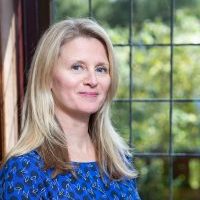
Sarah Wild has worked in a range of education settings for 20 years, is a qualified Teacher of the Deaf, an English teacher and has leadership experience in both mainstream and special schools in London and Brighton. Since her appointment as Headteacher at Limpsfield Grange School, a residential and day school for girls aged 11-16 with communication and interaction difficulties, in the UK over 8 years ago, she has dedicated time to raising awareness of female autism nationally.
Limpsfield Grange School is a was the subject of the ITV documentary “Girls with Autism” and students of the school have written two novels “M in the Middle” and “M is for Autism” with the author Vicky Martin. Sarah is also the founding member of Autism and Girls Forum, and has contributed to published works on female autism and education, and on working with disadvantaged young people.
Interview with Limpsfield Grange Residential & Day School for Girls
In this interview with Headteacher Sarah Wild we get to hear about the workings of an all girls residential and day school supporting and caring for students with a wide range of needs. Many of these students have high and persistent levels of anxiety and we’ll explore supports developed, the curriculum used, management of social interaction and anxiety, as well as many more topics and what lessons have been learnt along the way.
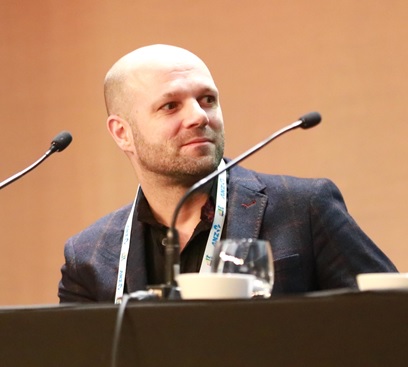
Dr Tom Tutton, from Autism Spectrum Australia (Aspect), started work for the severe challenging behaviour team in the UK in 1997 working closely with students on the spectrum to maintain home and school placements. Subsequently, after 3 years completing a clinical psychology degree at Southampton University and more than 10 years supporting people on the spectrum in classrooms, schools, family homes and communities through direct service, training and research, he has never wanted to do anything else. Tom has spoken at Asia Pacific Autism Conferences, the Autism Congress in Singapore 2017 and the Association of Positive Behaviour Support conference in Denver 2017. Tom coordinates Aspect’s Autism Friendly Australia work that has included work with Taronga Zoo, Coles, the Museum of Contemporary Art, VIVID festival and Surf Life Saving Australia.
Positive Behaviour Support for Educators
To be included and to help reach their potential, autistic students have a right to individualised evidence-based autism-specific practices. Formal reports into education and regular news stories show that we routinely don’t get this right. This presentation covers two key areas of support (1) school-wide approaches that create safe predictable autism friendly environments and prevent barriers and (2) simplified Positive Behaviour Support plans for situations where there are specific needs that can be shared between home and school.Workshop: Parental Self Care with Emma Goodall
Parenting any child can be stressful but this can be especially so if you have to learn new autism-specific approaches and if you receive little support to do so. Parents of children on the autism spectrum sometimes overlook their own self care. This session combines information from the Positive Partnerships self-care session on understanding the importance of self-care, identifying and planning self-care opportunities and a session from Aspect’s Positive Behaviour Support workshop in responding to behaviours that challenges us. We acknowledge the normal range of human thoughts and feelings that occur in challenging situations and then make a plan t respond more helpfully. Emma will close the session discussing and practising calming, self-regulation and co-regulation.Positive Behaviour Support for Parents (Bunbury only)
Parenting an autistic child brings joys and challenges. This presentation focuses on creating the best quality of life for young people on the autism spectrum and their families, building positive relationships, autism friendly environments and developing essential skills. Tom will explore how we can understand what underlies challenges and how we can use Positive Behaviour Support to develop quality of life plans that can be shared between environments, including at home and at school.
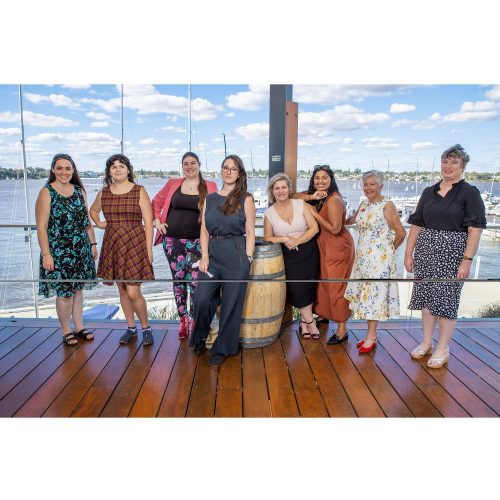
Spectrum Space’s Women’s Council was established in 2018 to highlight the experiences of women and girls on the autism spectrum. They do so by exchanging stories and personal accounts of their lived experiences in the hope of connecting with those on the spectrum, celebrating diversity from a strengths-based viewpoint.
Insight Into the World of Women and Girls on the Spectrum
In this session, the Women’s Council will share stories of lived experiences and present the importance of interests and passions and how these can help build resilience and foster good mental well-being.